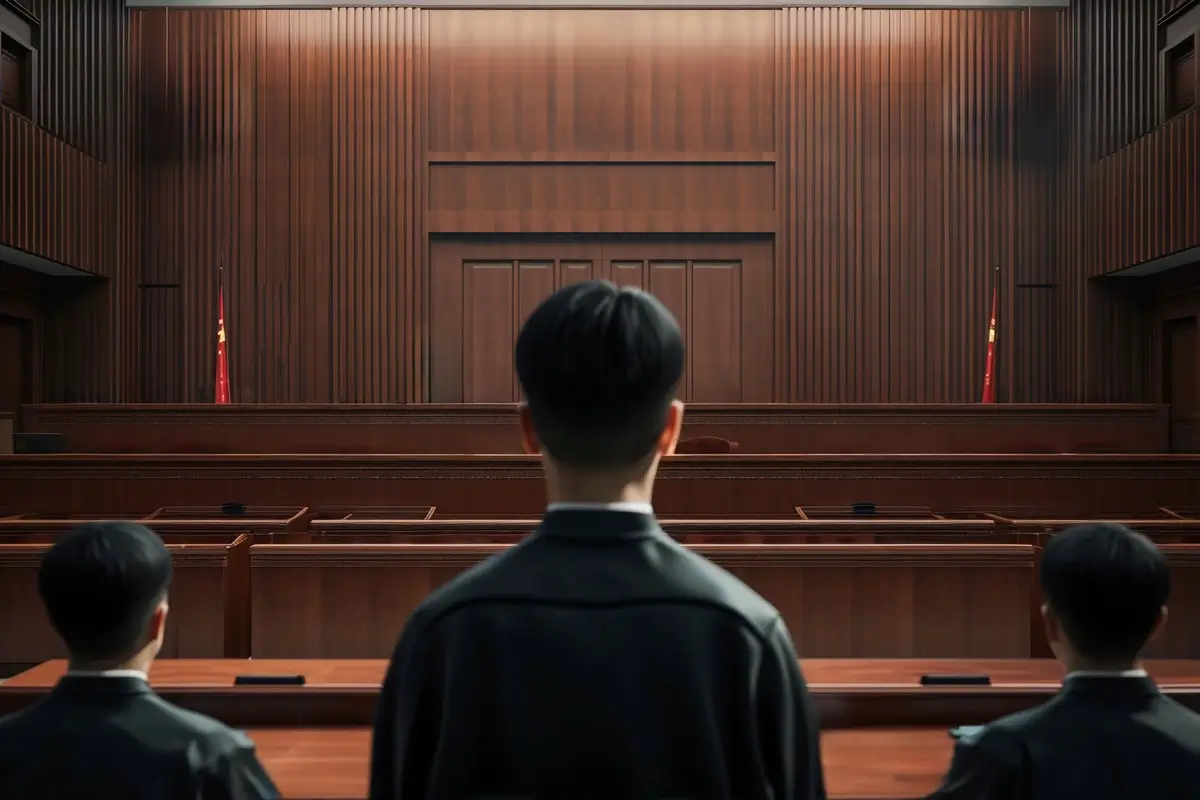Advocate Immunity: Definition, Limitations, and Importance in Upholding Justice

Advocates play a crucial role as guardians of justice in carrying out their duties. To protect advocates from threats or intimidation that could hinder their professional responsibilities, the law grants what is known as advocate immunity. But what exactly is this immunity, and why is it so critical in legal practice?
What is Advocate Immunity?
Advocate immunity is a privilege provided by the law that protects advocates from certain threats or legal actions while performing their professional duties. This protection ensures that advocates can carry out their role freely, without fear or intimidation, to defend their clients. As part of the legal profession, advocates are accountable to their clients and the judicial system. Advocate immunity thus serves as a safeguard for their independence, enabling them to uphold the principles of justice.

Read More: Understanding Embargoes
Legal Basis for Advocate Immunity
In Indonesia, advocate immunity is regulated under Article 16 of Law Number 18 of 2003 concerning Advocates (“Law 18/2003”). This article states:
“An advocate cannot be prosecuted civilly or criminally for carrying out their professional duties in good faith in the interest of defending their clients in court proceedings.”
The provision clearly specifies that advocate immunity is limited in scope and applies only when advocates act in good faith while performing their duties, particularly in court. This protection includes statements or actions directly related to the defense process.
Core Principles of Advocate Immunity
On an international scale, advocate immunity is framed by three core principles:1
- Freedom from Intimidation and Interference
According to the Basic Principles on the Role of Lawyers by The United Nations, governments must ensure that advocates are free from any form of intimidation, threats, or interference that may hinder their professional duties. This includes protection against unfounded legal actions as long as the advocates act within the scope of their legitimate advocacy duties. - Immunity from Various Legal Actions
The International Bar Association (IBA) Standards for Independence of the Legal Profession highlight that advocates are protected not only from criminal and civil prosecutions but also from administrative sanctions, economic pressures, and other forms of intimidation. This protection applies as long as advocates adhere to the law and ethical standards, allowing them to provide legal advice and defend clients without fear of retaliatory actions. - Guarantee of an Independent Judicial System
The 1983 Montreal Declaration on the Independence of the Judiciary emphasizes the necessity of a fair and independent judicial system capable of shielding advocates from external interference that could compromise their duties. The declaration underscores the essential role of advocates as an integral element of the justice system that maintains integrity.
Limitations of Advocate Immunity
While advocate immunity provides essential protection for advocates, it is not absolute. This immunity is designed to ensure advocates’ freedom in defending their clients, but it comes with limitations that must be respected.
Under Article 16 of Law 18/2003, immunity applies only if the advocates:
- perform their professional duties within a lawful scope,
- act in good faith, and
- operate within legal boundaries without violating ethical or legal standards.
These limitations emphasize that immunity cannot be used to justify actions that contravene the law or breach professional ethics. For instance, statements that are irrelevant a client’s defense or actions outside the courtroom that harm others can lead to legal accountability. By setting these boundaries, advocates are expected to carry out their responsibilities professionally and responsibly in accordance with the principles of justice and the rule of law.

Read More: Cassation is
Case Examples of Advocate Immunity Violations
Several cases demonstrate how claims of advocate immunity have come under scrutiny when linked to allegations of misuse.
One notable case involved Fredrich Yunadi, the former legal counsel for Setya Novanto, who was prosecuted for obstructing the investigation of the e-KTP corruption case. Fredrich claimed his actions were protected under advocate immunity as outlined in Article 16 of Law 18/2003, which was expanded through Constitutional Court Decision No. 26/PUU-XI/2013. This decision affirms that advocates cannot be prosecuted civilly or criminally for performing their professional duties in good faith, both inside and outside the court.
However, Fredrich’s actions, which included orchestrating scenarios to shield his client from investigation, were deemed to have exceeded the bounds of immunity, particularly as the actions constituted obstruction of justice. Ultimately, he was convicted for violating Article 21 of Law Number 31 of 1999 concerning Eradication of Corruption.
Similar cases also occurred with Manatap Ambarita and Lucas, both advocates who were prosecuted for obstructing legal processes. Manatap was sentenced to three years in prison for aiding in concealing his client from investigation, while Lucas received a three-year imprisonment sentence for obstruction of justice in a bribery case involving Eddy Sindoro.
***
About ADCO Law:
ADCO Law is a law firm that offers clients a wide range of integrated legal services, including commercial transactions and corporate disputes in a variety of industry sectors. Over the course of more than a decade, we have grown to understand our clients’ industries and businesses as well as the regulatory aspects. In dealing with business dynamics, we provide comprehensive, solid legal advice and solutions to minimize legal and business risks.
From Upstream to Downstream, We Understand Your Industry. In complex transactions and certain cases, we actively engage with financial, tax, and environmental specialists, accountants, and law firms from various jurisdictions to add value to our clients. Our strong relationships with Government agencies, regulators, associations, and industry stakeholders ensure that our firm has a holistic view of legal matters.
ADCO Law is a Proud Member of the Alliott Global Alliance (AGA) in Indonesia. Founded in 1979, AGA is one of the largest and fastest-growing global multidisciplinary alliances, with 215 member firms in 95 countries. As a law firm, we also believe in regeneration. To stay abreast of business changes and stay relevant, our formation of lawyers is comprised of the top graduates from Indonesian and international law schools.


